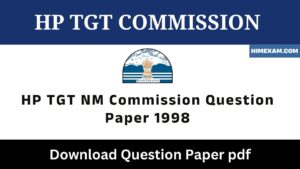Anglo-Sikh Wars
After the death of Ranjit Singh (in 1821 AD), the Khalsa Army fought a number of wars with the British, e.g. at Mudki and Firozpur in 1845 at Aliwal in 1846 and at Sabron in 1846. The hill chiefs were aggressive by the annexation policy of Raja Ranjit Singh. They wanted to regain their lost territories, thus they helped the British troops. There were two Anglo-Sikh wars between the British and Sikhs. The description of these wars are as follows:
First Anglo-Sikh War (1845-46 AD)
In the First Anglo-Sikh War the hill chiefs expelled the Sikhs from their posts and territories and helped the British in the war against the Sikhs. Guler ruler, Shamsher Singh expelled the Sikhs from Haripur fort. Nurpur ruler, Bir Singh siezed the Nurpur fort but died in the war. Kutlehr ruler, Raja Narain Pal also expelled Sikhs from his state and captured all the forts, except Kamalgarh. The Sikhs did not leave the Kamalgarh fort till the war was over. The First Anglo-Sikh War (1845-1846) ended by the Treaty of Lahore on 9th March. Under the Treaty, the hill areas between the Sutlej and the Ravi came under the direct rule of British. This included the hill states of Chamba, Mandi, Suket, Kangra, Nurpur, Jaswan, Datarpur, Kullu, Guler and Lahaul and Spiti.
Second Anglo-Sikh War (1848-49 AD)
After the first Anglo-Sikh War, instead of restoring the surrendered territory to the hill chiefs, the British retained all the territories of the Kangra group of states. This act of the British created a great resentment among the Kangra hill chiefs. During the second Anglo-Sikh War, the hill chiefs decided to help the Sikhs instead of the British this time. They also took a promise from the Sikhs, that in case of success, the Sikhs would return their territories which were retained by the British. The first revolt was started by the Wazir of Nurpur Ram Singh and Parmodh Chand of Kangra along with rulers of Jaswan and Datarpur. The British Government sent a force under Mr Lawrence, the Commissioner, who suppressed the revolt. Then he exiled the rebellious chiefs and sent them to Almora where in 1851 AD, Parmodh Chand died. Later, British defeated Ram Singh, the Minister of Nurpur, who was sent to Singapore by British where he died. The second Anglo-Sikh War completely ended the rule of sikh in the hilly areas and the British emerged as the supreme power of the hill states.
Read More: – Himachal Pradesh General Knowledge









